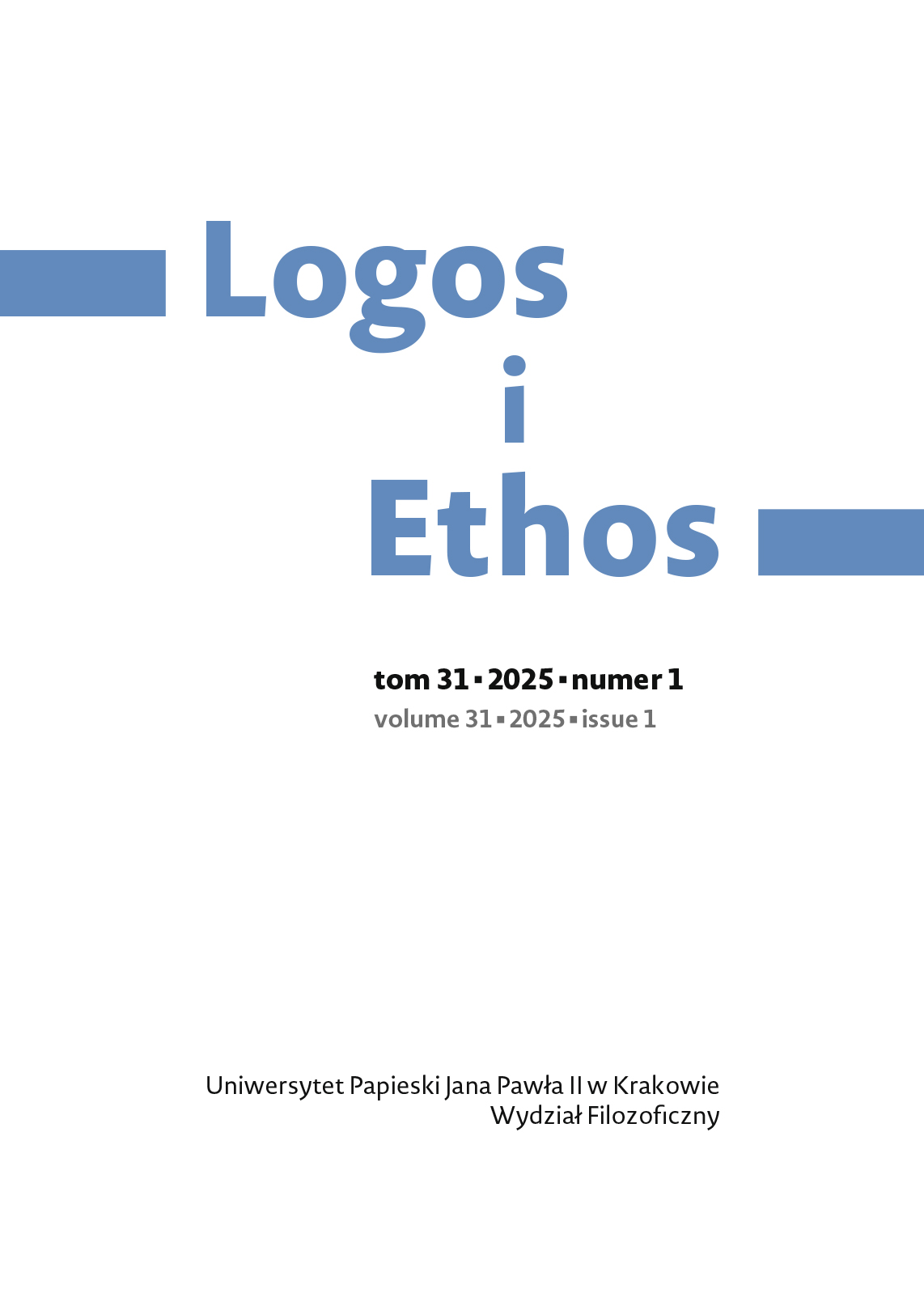Anthropology is not anthropobiology: Josef Pieper’s discussion with Arnold Gehlen
DOI:
https://doi.org/10.15633/lie.31104Keywords:
philosophy, biology, anthropology, anthropobiology, human, animalAbstract
The considerations contained in this article are devoted to explaining the current issue concerning the relationship between philosophical anthropology and biological sciences, and in this context also with neuroscience. Unlike Arnold Gehlen, Joseph Pieper perceives the place of biology only at the starting point of analyzes of philosophical anthropology, i.e. in accordance with its classical understanding, rejecting the anthropobiologist’s thesis that biology plays a role in the explanation of human existence. Two threads are highlighted in the article. The first is a presentation of Gehlen’s most important theses about man, of course as interpreted by Pieper, while the second concerns an original and its interesting assessment by the thinker from Münster. An attempt was then made to explain Pieper’s controversial statement, which rightly emphasized, on the one hand, that anthropology, contrary to what Gehlen believed, cannot be anthropobiology, but only a philosophical anthropology, and on the other hand convinced of the need to open up human philosophy to theology. It was also indicated in what way in the discussion with Gehlen is reflected the contribution of Pieper to anthropology as understood by St. Thomas Aquinas.
References
Gehlen A., Człowiek, jego natura i stanowisko w świecie, przekład i opracowanie naukowe R. Michalski, J. Rolewski, Toruń 2017.
Hengstenberg H. E., Der Wesesunterschied zwischen Mensch und Tier, Essen 1962.
Jaworski M., Teologia a antropologia. Aspekt filozoficzny, „Analecta Cracoviensia” 3 (1971), s. 51–69, https://doi.org/10.15633/acr.2753.
Kowalczyk S., Antropologia filozoficzna — koncepcja, metody, problematyka, w: Antropologia, red. S. Janeczek, Lublin 2010.
Kożuchowski J., Człowiek — kultura — społeczeństwo. Stanowisko Josefa Piepera w kontekście współczesnej filozofii niemieckiej, Toruń 2010.
Krąpiec M. A., Wprowadzenie do filozofii, Lublin 1996.
Michalski M., Czy Arnold Gehlen był naturalistycznym redukcjonistą?, „Filozofia i Nauka. Studia filozoficzne i interdyscyplinarne” 6 (2018), s. 97–116.
Michalski R., „Homo Defectus” w kulturze późnej nowoczesności, Toruń 2013.
Morawiec E., Empiryczne nauki szczegółowe o człowieku a antropologia filozoficzna, „Studia Redemptorystowskie” (2008) nr 6, s. 87–100.
Pieper J., Anthropo-Biologie. Über Arnold Gehlens Der Mensch, w: J. Pieper, Miszellen. Register und Gesamtbibliographie. CD-Rom zum Gesamtwerk, hrsg. von B. Wald, Bd. 8,1, Hamburg 2007.
Pieper J., Glück und Kontemplation, München 1957.
Pieper J., Muβe und Kult, München 1965.
Pieper J., Wahrheit der Dinge, München 1947.
Pieper J., Welt und Umwelt, w: J. Pieper, Schriften zur Philosophischen Anthropologie und Ethik, hrsg. von B. Wald, Hamburg 1996.
Pieper J., Zustimmung zur Welt, w: J. Pieper, Kulturphilosophische Schriften, Bd. 6, hrsg. von B. Wald, Hamburg 1999.
Skarga B., Przewodnik po literaturze filozoficznej XX wieku, t. 2, Warszawa 1994.
Strumiłowski J. P., Neuronauki, teologia, metafizyka — w poszukiwaniu wspólnej przestrzeni dialogu, „Studia Teologii Dogmatycznej” 4 (2018), s. 85–98, https://doi.org/10.15290/std.2018.04.06.
Tomasz z Akwinu św., Traktat o człowieku, przełożył i opracował S. Swieżawski, Kęty 2000.
Tomasz z Akwinu św., Suma teologiczna, t. 6: Człowiek, cz. 1, przełożył i objaśnieniami zaopatrzył o. Pius Bełch, Londyn 1980.
Wald B., Pieper Josef, w: Powszechna encyklopedia filozofii, t. 8: P-S, red. A. Maryniarczyk, Lublin 2007.
Downloads
Published
Issue
Section
License
Copyright (c) 2025 Józef Kożuchowski

This work is licensed under a Creative Commons Attribution 4.0 International License.
Authors who publish with this journal agree to the following terms:
- Authors retain the copyright and full publishing rights without restrictions, and grant the journal right of first publication with the work simultaneously licensed under a Creative Commons Attribution 4.0 International License that allows others to share the work with an acknowledgement of the work's authorship and initial publication in this journal.
- Authors are able to enter into separate, additional contractual arrangements for the non-exclusive distribution of the journal's published version of the work (e.g., post it to an institutional repository or publish it in a book), with an acknowledgement of its initial publication in this journal.
- Authors are permitted and encouraged to post their work online (e.g., in institutional repositories or on their website) prior to and during the submission process, as it can lead to productive exchanges, as well as earlier and greater citation of published work (See The Effect of Open Access).

